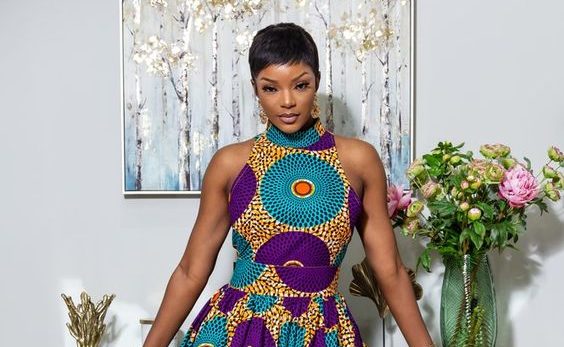Kenya Bans President Ruto’s Kaunda Suits and African Attire From Parliament – Kenyans React

In a surprising move, Kenya’s parliament has recently implemented a ban on the wearing of the Kaunda suit and other traditional African outfits within the parliamentary building. The decision, made by Speaker of Parliament, Moses Wetangula, has caused quite a stir, with mixed reactions from the public.
ALSO READ: President Ruto’s Inspiring Call for a Fair and Transparent Global Financial System
The Kaunda suit, named after the late Zambian President Kenneth Kaunda, is a safari jacket paired with matching trousers. This attire gained popularity in Kenya, thanks to President William Ruto frequently sporting it during official occasions.

However, citing emerging fashion trends as a threat to the established parliamentary dress code, Speaker Wetangula deemed it necessary to impose stricter guidelines. The ban on the Kaunda suit, along with other traditional African outfits, has since sparked discussions and debates, particularly on social media platforms.
Key Takeaways:
- Kenya’s parliament has banned the Kaunda suit and other traditional African outfits from being worn inside the parliamentary building.
- Speaker of Parliament, Moses Wetangula, implemented the ban to preserve the established dress code and address emerging fashion trends.
- President William Ruto’s frequent appearances in the Kaunda suit contributed to its popularity and subsequent discussions surrounding the ban.
- The decision has generated mixed reactions on social media, with some questioning the prohibition of African attire in an African parliament.
- The controversy highlights the significance of African fashion and cultural expression in various spheres of society.
Why The Ban on Kaunda Suit and African Attire
The Speaker of Parliament, Moses Wetangula emphasized that the decision was made to preserve professionalism and decorum within the parliamentary setting.
“The ban on the Kaunda suit and traditional African attire is necessary to maintain the dignity of our parliamentary proceedings,” stated Speaker Wetangula. “While we value our African heritage and diverse cultures, we must also adapt to the changing times and adhere to modern dress code guidelines.”
Reinforced Dress Code Guidelines
The dress code guidelines for men now require a coat, collar, tie, long-sleeved shirt, long trousers, socks, shoes, or service uniform. Women are expected to adhere to business, formal, or smart casual wear, with skirts and dresses below knee-length and sleeveless blouses prohibited.
Wetangula further explained that the Kaunda suit had previously been tolerated, but its increasing popularity and the emergence of new fashion trends necessitated stricter enforcement of the dress code rules.
Public Response and Discussions on the Ban
The ban on the Kaunda suit and traditional African attire has stirred reactions on social media questioning the move.




While some individuals support the decision, emphasizing the importance of maintaining professionalism in a formal setting, others question why African attire is being prohibited in an African parliament. The controversy surrounding the ban highlights the significance of fashion in cultural expression and opens up discussions on the intersection of tradition and modernity.

One of the main points of contention is the question of why an African attire would be banned within an African parliament. Many social media users have expressed their disbelief, emphasizing the importance of embracing cultural expression in such a setting. They argue that African fashion should be celebrated and incorporated, rather than restricted.
On the other hand, there are those who support the ban, emphasizing the need to maintain professionalism and adhere to established dress codes in official settings. They believe that enforcing a specific dress code promotes a sense of order and decorum within the parliament.
The Kaunda suit controversy has been at the forefront of these discussions, with some individuals mocking the ban by suggesting that the attire is now exclusively reserved for the president. This playful commentary showcases the impact of the Kaunda suit’s popularity, particularly due to President William Ruto’s preference for it.

The ongoing conversations surrounding this ban highlight the significance of African fashion and cultural expression. While opinions may differ, it is clear that the topic resonates deeply within communities and emphasizes the importance of cultural identity in shaping society.







Responses